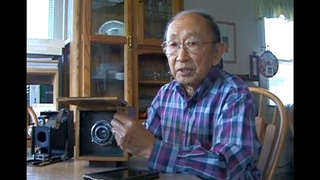Interviews
We’re Still Japanese
And immediately when that happened, I thought, God, what's going to happen to us? We didn't think about being thrown into camps, certainly, but we still -- we had the, "We are Japanese." We're not, we're not Japanese Americans, we were still a Japanese kind of thing. Although we danced jitterbug and listened to swing music, we're still Japanese. And yet we couldn't relate to the Japanese in Japan, so there was really a conflict there. Who are we?
Again, identity was a big problem for me. And I didn't want to be a part of that stuff at all. And yet, golly, I look in the mirror, and I'm Japanese. So this was a major identity problem. And so there was a feeling of guilt, too, being Japanese. Japanese name. Eating gohan. And yet I didn't feel a part of that scene over there because I had not been to Japan at that time, no contact with any of my relatives over there. So internally, it was a terrible time. On the other hand, in the community still, I was not part of the mainstream community. I was still in the Japanese community. And all my friends were Niseis. So we were all somewhat confused, yeah.
Date: February 18, 2002
Location: Washington, US
Interviewer: Alice Ito, John Pai
Contributed by: Denshō: The Japanese American Legacy Project.










